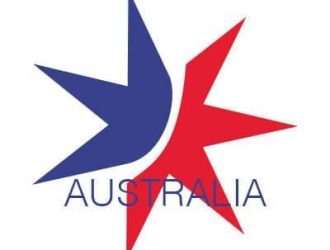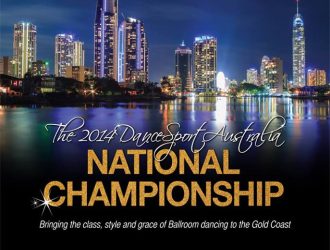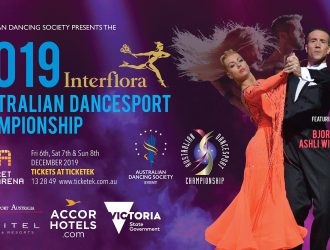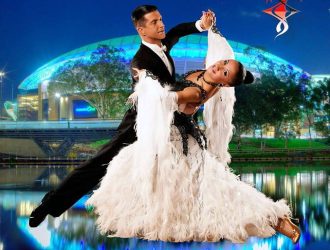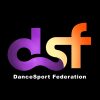Dancesport Australia
Dancesport Australia (DSA) - is the official national governing body for DanceSport (the competitive version of ballroom dancing) in the Australia. Member of World DanceSport Federation (WDSF), President - Gordon Gilkes.
- Category:
Sport Organizations
- Officially Founded:
July 1st 1998
- Abbreviation:
DSA
- Headquarters:
Australia
- Member:
- President:
Overview#
Dancesport Australia, is the official national governing body for DanceSport (the competitive version of ballroom dancing) in the Denmark. Current President is – Gordon Gilkes. “Dancesport Australia” was founded on July 1st 1998. Dancesport Australia is Member of the: World DanceSport Federation (WDSF)
DSA DANCESPORT – A skill for life#
Dance is an endeavour which improves the quality of life. In its simplest form, it can provide pleasurable aerobic and weight bearing exercise, at the highest levels it can transcend language barriers as music and movement stir the emotions of audiences.
DanceSport is the unique activity that combines both sport and the art of dance. It allows participants to improve their physical fitness, coordination, balance and helps address many other difficulties faced these days. Obesity is one of the world’s greatest problems in this modern age and DanceSport is one of the most effective and entertaining ways to help improve levels of exercise.
DanceSport – promotes family participation, develops social interaction, and builds community relationships. In fact, the advantages of DanceSport encompass almost every aspect of life and therefore impacts every person around the world who is capable of moving to music.
DanceSport– requires no special skills or equipment, except the wish to learn which is unique amongst the various forms of dance. People of all ages, gender and culture can enjoy the challenges that range from social dancing to competitive action.
Dancesport Australia organizing several World DanceSport Federation (WDSF) events per year: “Australian Dancesport Championships“.
Purpose of DSA#
The purpose and mission of Dancesport Australia is methodologically and organizationally support development of DanceSport, defend the interest of its members and promote their legitimate demands. Dancesport Australia purpose is, in particular – to create space for the appropriate use of leisure time by people interested in DanceSport, thereby ensuring broad base particularly in the categories of children and juniors. To provide conditions for the excellent level of Danish DanceSport internationally.
Members#
Total Dancesport Australia registered with World DanceSport Federation (WDSF):
- Athletes: 1356
- Couples: 76
- Adjudicator: 13
- Chairpersons: 1
DSA Administration#
- National President: Gordon Gilkes
- Chief Executive Officer & Sports Director: Dallas Williams
- General Secretary & National Registrar: Steve Edwards
- Cheif Financial Officer: Derek Gatley
National Councillors#
- Adam Blakey
- Anna Longmore
- Gordon Gilkes
- Shane Hocking
- Martyn Kibel
- Alan Shingler
- Geoff Vine
- Barry White
- Madeleine Zoanetti
Commission Chairs#
- Accreditation Commission – Martyn Kibel
- Australian Affairs Commission – Adam Blakey
- Ethics & Compliance Commission – Chris Sandison
- International Selections Committee – Adam Blakey
- Marketing & Communications Commission – Geoff Vine
- Sport & Development Commission – Dallas Williams
- Registered Training Facility Commission – Gordon Gilkes
- Rules Commission – Derek Gatley
Competitions#
Dancesport Australia is organizing several World DanceSport Federation (WDSF) Events per year:
- “Australian Dancesport Championships” in Melbourne, Australia (beginning of December)
- Organizer: Australian Dancing Society
- Events:
